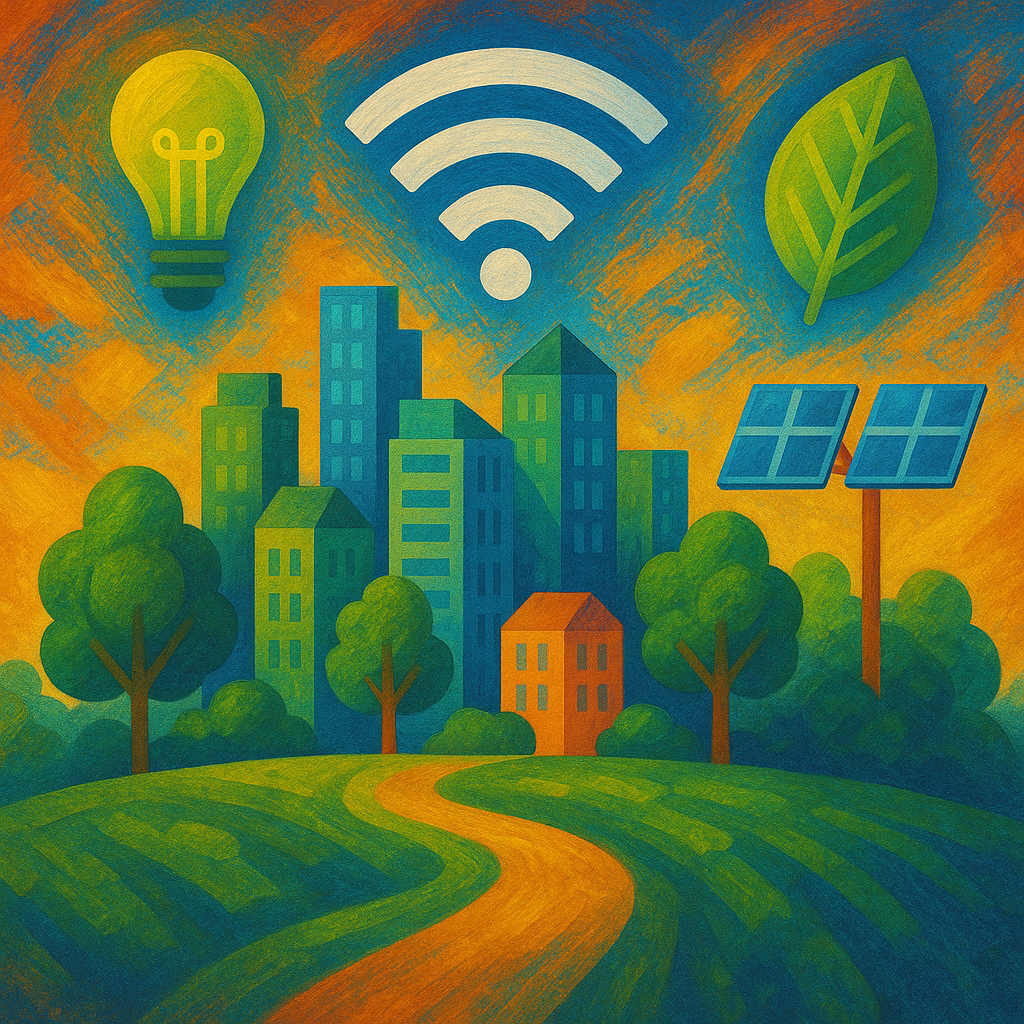Smart Cities
Every year the population in cities increases. Cities are responsible for the majority of energy
consumption and greenhouse gas emissions.
Unlike popular beliefs, smart cities are much more than information and communication technologies
(ICT) benefiting inhabitants and businesses.
Smart cities will have a great impact on climate change.
Introducing terms such as smart living, and smart environment and energy will help with a
sustainable city development, where renewable energies are used and fewer emissions are created.
This will not only increase life quality but also shift science development to a new, more
sustainable approach.
Artificial Intelligence
Artificial intelligence (AI) is a transformative technology that has firmly established itself in
our rapidly evolving world. When harnessed and developed ethically, AI has the potential to become a
powerful ally for humanity in solving some of our most pressing challenges. Its applications span
across various fields, from healthcare and education to environmental conservation and beyond.
As we embrace the promises of AI, it’s crucial to recognize our responsibility in shaping its
development. We must ensure that AI serves society, prioritizing social and ethical considerations.
This means establishing clear guidelines, safeguarding privacy, and addressing issues of fairness
and transparency.






